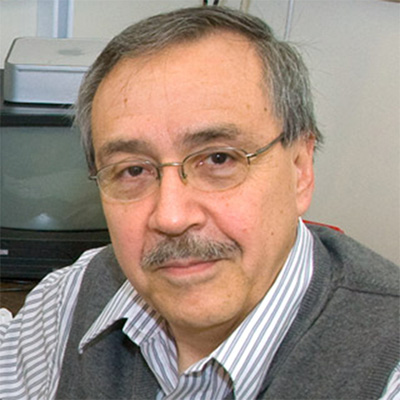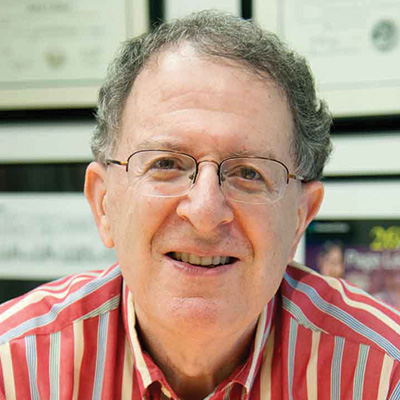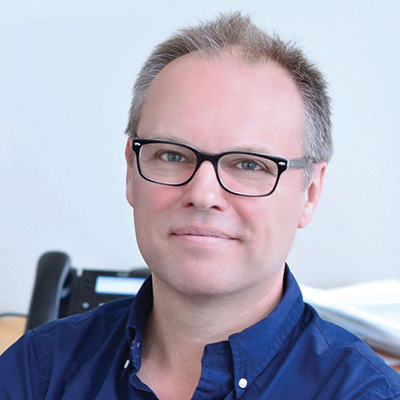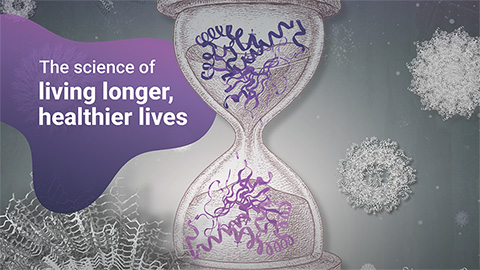Vallee visiting professors named
Of the four scientists named 2023 Vallee Visiting Professors by the Vallee Foundation, three are members of the American Society for Biochemistry and Molecular Biology: Carlos Bustamante of the University of California, Berkeley; Jeffrey Gordon of the Washington University School of Medicine; and Gero Miesenböck of the University of Oxford. The fourth is Gina Turrigano of Brandeis University.



The foundation’s stated mission is to “promote a collegial community of international scientists, to enhance scientific collaboration and communication, and to advance medical education and biomedical research.” The four awardees will have the opportunity to take a one-month sabbatical at a research institution of their choosing to explore new concepts and ideas, exchange scientific views, and establish and strengthen collaborative relationships with other researchers.
Bustamante is a professor of molecular and cell biology, physics and chemistry at UC Berkeley. His research focuses on the structural characterization of nucleo-protein assemblies as well as protein–DNA interactions and their control of gene expression. His laboratory was the first to mechanically manipulate and stretch a single molecule of DNA to determine its elastic properties. Bustamante won the Biophysical Society’s 2021 Kazuhiko Kinosita Award in Single-Molecule Biophysics, and he is a member of the National Academy of Sciences and the American Academy of Arts and Sciences. He will use his VVP sabbatical to organize an annual international summer course in advanced biophysics and structural biology at the University of Salamanca in Spain.
Gordon is a professor in the departments of pathology and immunology, medicine, molecular microbiology and developmental biology at WashU and founding director of the university’s Center for Genome Sciences and Systems Biology. His lab explores the role of the gut microbiome in defining healthy growth of infants and children and in the pathogenesis of malnutrition. Gordon is a member of the NAS, the AAA&S, the National Academy of Medicine and the American Philosophical Society. He has won numerous awards and honors; recent accolades include the Balzan Prize, the David and Beatrix Hamburg Award for Advances in Biomedical Research and Clinical Medicine, the Dr. Paul Janssen Award for Biomedical Research and the Albany Medical Center Prize. Gordon will spend his VVP sabbatical in Bangladesh working with colleagues at the International Centre for Diarrhoeal Disease Research.
Miesenböck is a professor of physiology and director of the Center for Neural Circuits and Behavior at the University of Oxford. His current research investigates the biological function and neuronal control of sleep. Miesenböck created the technique of optogenetics. He was the first to genetically modify neurons so their electrical activity could be controlled with light, and he was the first to use this form of optical remote control to insert artificial messages into the brain. His awards for the invention of optogenetics include the Brain Prize, the Heinrich Wieland Prize, the BBVA Foundation Frontiers of Knowledge Award, the Massry Prize and the Shaw Prize. He is a member of the Austrian and German academies of sciences and a fellow of the Royal Society. For his VVP sabbatical, he will join distinguished scientists who share his interests in using the fly model to gain a mechanistic understanding of cognitive processes.
In addition to their sabbatical, the awardees will each receive a $25,000 honorarium. A number of ASBMB members are past Vallee Visiting Professors, including Emmanuelle Charpentier, Elaine Fuchs, Michael Hall and Eva Nogales.
Enjoy reading ASBMB Today?
Become a member to receive the print edition four times a year and the digital edition monthly.
Learn moreGet the latest from ASBMB Today
Enter your email address, and we’ll send you a weekly email with recent articles, interviews and more.
Latest in People
People highlights or most popular articles

From humble beginnings to unlocking lysosomal secrets
Monther Abu–Remaileh will receive the ASBMB’s 2026 Walter A. Shaw Young Investigator Award in Lipid Research at the ASBMB Annual Meeting, March 7-10 in Washington, D.C.

Chemistry meets biology to thwart parasites
Margaret Phillips will receive the Alice and C. C. Wang Award in Molecular Parasitology at the ASBMB Annual Meeting, March 7-10 in Washington, D.C.

ASBMB announces 2026 JBC/Tabor awardees
The seven awardees are first authors of outstanding papers published in 2025 in the Journal of Biological Chemistry.

Decoding how bacteria flip host’s molecular switches
Kim Orth will receive the Earl and Thressa Stadtman Distinguished Scientists Award at the ASBMB Annual Meeting, March 7–10, just outside of Washington, D.C.

Thiam elected to EMBO
He was recognized during the EMBO Members’ Meeting in Heidelberg, Germany, in October.

The timekeepers of proteostasis
Learn about the cover of the winter 2026 ASBMB Today issue, illustrated by ASBMB member Megan Mitchem.
